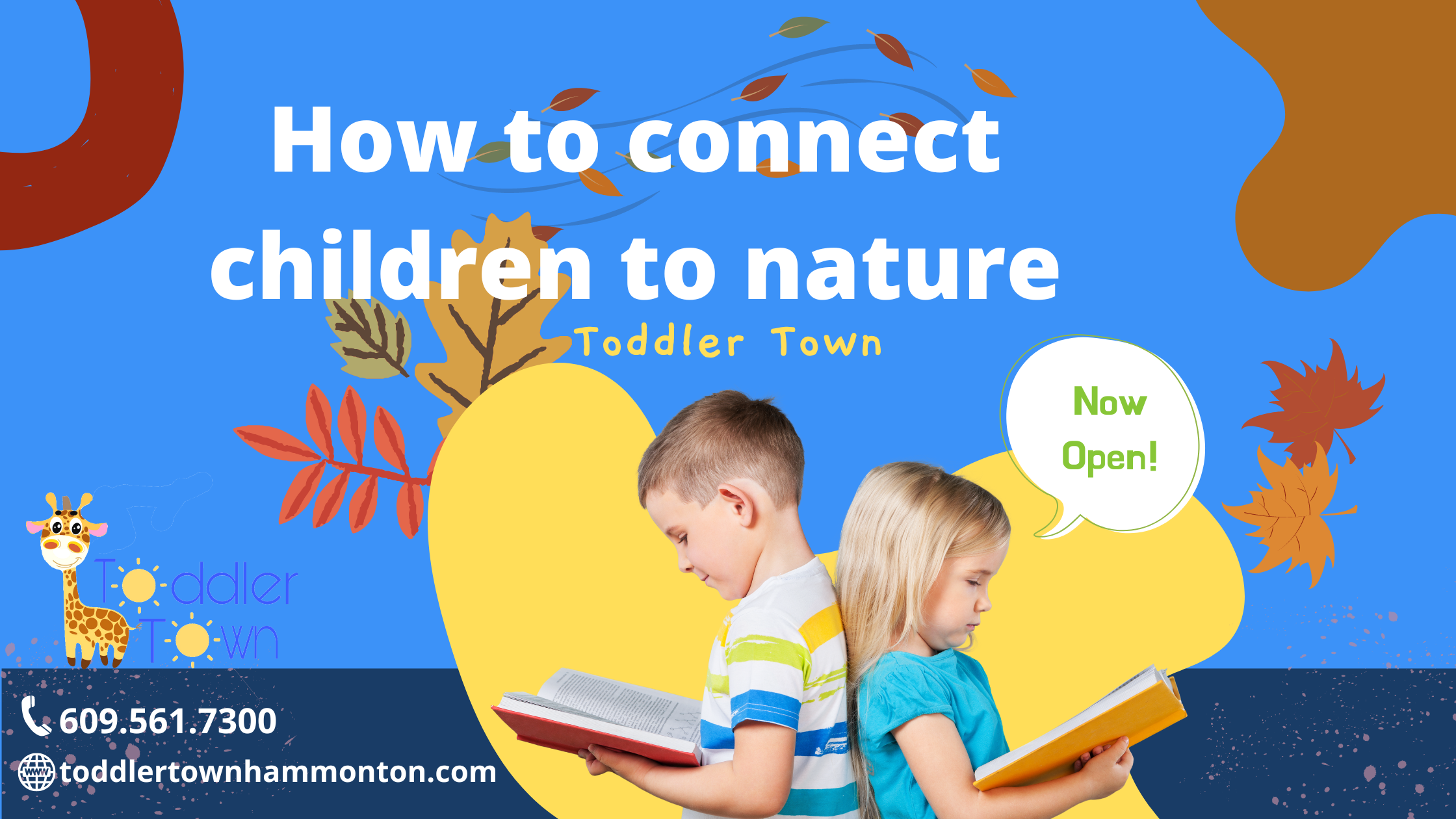In today’s world, it’s more important than ever to connect children to nature. By doing so, we can help them develop a sense of wonder and stewardship for the natural world.
The problem: children are spending less time outside
In recent years, there has been a decline in the amount of time children spend outside. According to a study conducted by the Nature Conservancy, the average American child spends less than 30 minutes a day outside, down from an estimated 7 hours in previous generations. This is concerning because time spent in nature has been shown to have numerous benefits for children, including improved mental and physical health.
There are a number of reasons why children are spending less time outdoors. One reason is that they have more sedentary lifestyles and spend more time indoors engaged in activities such as watching television or playing video games. Another reason is that many families now live in urban areas where there are fewer opportunities for outdoor play. Additionally, parents may be concerned about safety risks associated with letting their children play outside unsupervised.
The benefits of connecting children to nature
There are many benefits to connecting children to nature. Studies have shown that time in nature can improve attention span, reduce stress, and increase creativity and problem-solving skills.
Nature provides opportunities for unstructured play, which is important for developing imagination and physical coordination. And simply being outside in the fresh air can boost energy levels and mood.
So get your kids outside! Take them on a hike, have a picnic in the park, or just let them run around in the backyard. Help them appreciate the beauty of the natural world and instill in them a lifelong love of the outdoors.
The ways to connect children to nature
In order to connect children to nature, there are a few things parents can do. First, take them outside often. Go on hikes, have picnics, and spend time in the backyard. Explain to them why you love nature and point out all the beautiful things around you. Second, teach them about the environment and how to take care of it. This can be done through books, movies, and conversations. Finally, show them that natures provides for us by planting a garden or taking care of some backyard animals together. By doing these things, children will begin to understand and appreciate nature more.
Why some parents don’t connect their children to nature
There are a number of reasons why some parents don’t connect their children to nature. First, they may not value the importance of nature in their own lives and thus see no need to instill that same appreciation in their children. Second, they may live in an urban environment where access to natural spaces is limited. And lastly, they may simply not have the time or resources to take their kids on regular outings to parks or other outdoor areas.
Whatever the reason, it’s important for parents to remember that connecting children with nature has myriad benefits. Studies have shown that spending time in nature can reduce stress levels, improve mental health and cognitive functioning, and increase physical activity levels. In other words, there are few downsides and plenty of upsides when it comes to connecting kids and nature.
In today’s world, it’s more important than ever to connect children to nature. By doing so, we can help them develop a sense of wonder and stewardship for the natural world.
The problem: children are spending less time outside
In recent years, there has been a decline in the amount of time children spend outside. According to a study conducted by the Nature Conservancy, the average American child spends less than 30 minutes a day outside, down from an estimated 7 hours in previous generations. This is concerning because time spent in nature has been shown to have numerous benefits for children, including improved mental and physical health.
There are a number of reasons why children are spending less time outdoors. One reason is that they have more sedentary lifestyles and spend more time indoors engaged in activities such as watching television or playing video games. Another reason is that many families now live in urban areas where there are fewer opportunities for outdoor play. Additionally, parents may be concerned about safety risks associated with letting their children play outside unsupervised.
The benefits of connecting children to nature
There are many benefits to connecting children to nature. Studies have shown that time in nature can improve attention span, reduce stress, and increase creativity and problem-solving skills.
Nature provides opportunities for unstructured play, which is important for developing imagination and physical coordination. And simply being outside in the fresh air can boost energy levels and mood.
So get your kids outside! Take them on a hike, have a picnic in the park, or just let them run around in the backyard. Help them appreciate the beauty of the natural world and instill in them a lifelong love of the outdoors.
The ways to connect children to nature
In order to connect children to nature, there are a few things parents can do. First, take them outside often. Go on hikes, have picnics, and spend time in the backyard. Explain to them why you love nature and point out all the beautiful things around you. Second, teach them about the environment and how to take care of it. This can be done through books, movies, and conversations. Finally, show them that natures provides for us by planting a garden or taking care of some backyard animals together. By doing these things, children will begin to understand and appreciate nature more.
Why some parents don’t connect their children to nature
There are a number of reasons why some parents don’t connect their children to nature. First, they may not value the importance of nature in their own lives and thus see no need to instill that same appreciation in their children. Second, they may live in an urban environment where access to natural spaces is limited. And lastly, they may simply not have the time or resources to take their kids on regular outings to parks or other outdoor areas.
Whatever the reason, it’s important for parents to remember that connecting children with nature has myriad benefits. Studies have shown that spending time in nature can reduce stress levels, improve mental health and cognitive functioning, and increase physical activity levels. In other words, there are few downsides and plenty of upsides when it comes to connecting kids and nature.
In conclusion, nature is essential for children’s physical, mental, and emotional development. By connecting children to nature early on, we can set them on a path to a lifetime of appreciation for the natural world. There are many simple ways to help children connect to nature – get outside with them, show them how to grow things, take them on hikes, and teach them about the animals and plants around them.
How to strengthen communication skills
In order for children to be successful in life, it is important for them to have strong communication skills. Communication skills involve being able to effectively express oneself both verbally and nonverbally. There are many ways that parents and caregivers can help their children strengthen their communication skills. One way is to provide opportunities for the children to talk with others, and learn how to listen attentively and respond appropriately. Additionally, parents and caregivers can model good communication skills themselves. By doing so, children will be more likely to develop strong communication skills of their own.
Roleplaying games
Roleplaying games have been used for years to help children develop communication skills. These games allow kids to use their imaginations and create new worlds while learning how to interact with others. These games can help kids learn how to take on different roles, solve problems, and communicate more effectively.
Also, roleplaying games are a great tool for teachers and parents that wish to teach their children about the world around them. By allowing children to play out different scenarios in which they interact with other characters, they can learn how to relate to others, work together, and solve problems.
Nonverbal communication
When most people think of communication, they think of talking. However, communication is more than just talking. It also includes the use of body language and facial expressions. Nonverbal communication can be just as important as verbal communication. In fact, it may even be more important.
Nonverbal communication helps us to communicate with others without using words. It can help us to express our feelings and emotions, and it can also help us to understand the feelings and emotions of others. Nonverbal communication can be very helpful in relationships, both personal and professional.
Exercises to improve communication skills
It seems like some people are born with great communication skills, others need to work on them. If you’re one of the latter, don’t worry – there are plenty of exercises you can do to improve you’re your kid’s communication skills.
One great way is to encourage their practice in public speaking. This can be done by them giving presentations at school and at home. Another way to improve your kids communication skills is by encouraging their practice of active listening. This involves parents or caregivers showing kids how to pay close attention to what the other people are saying, making sure they understand the conversation, and that they respond in a way that reflects that understanding.
In conclusion, communication skills are important for everyone, but especially kids. By strengthening these skills at an early age, we can help them better navigate through life. There are many ways to do this, and it is important to find the right method for each child. With some effort, we can help our kids become better communicators and strengthen the relationships they have with others.

